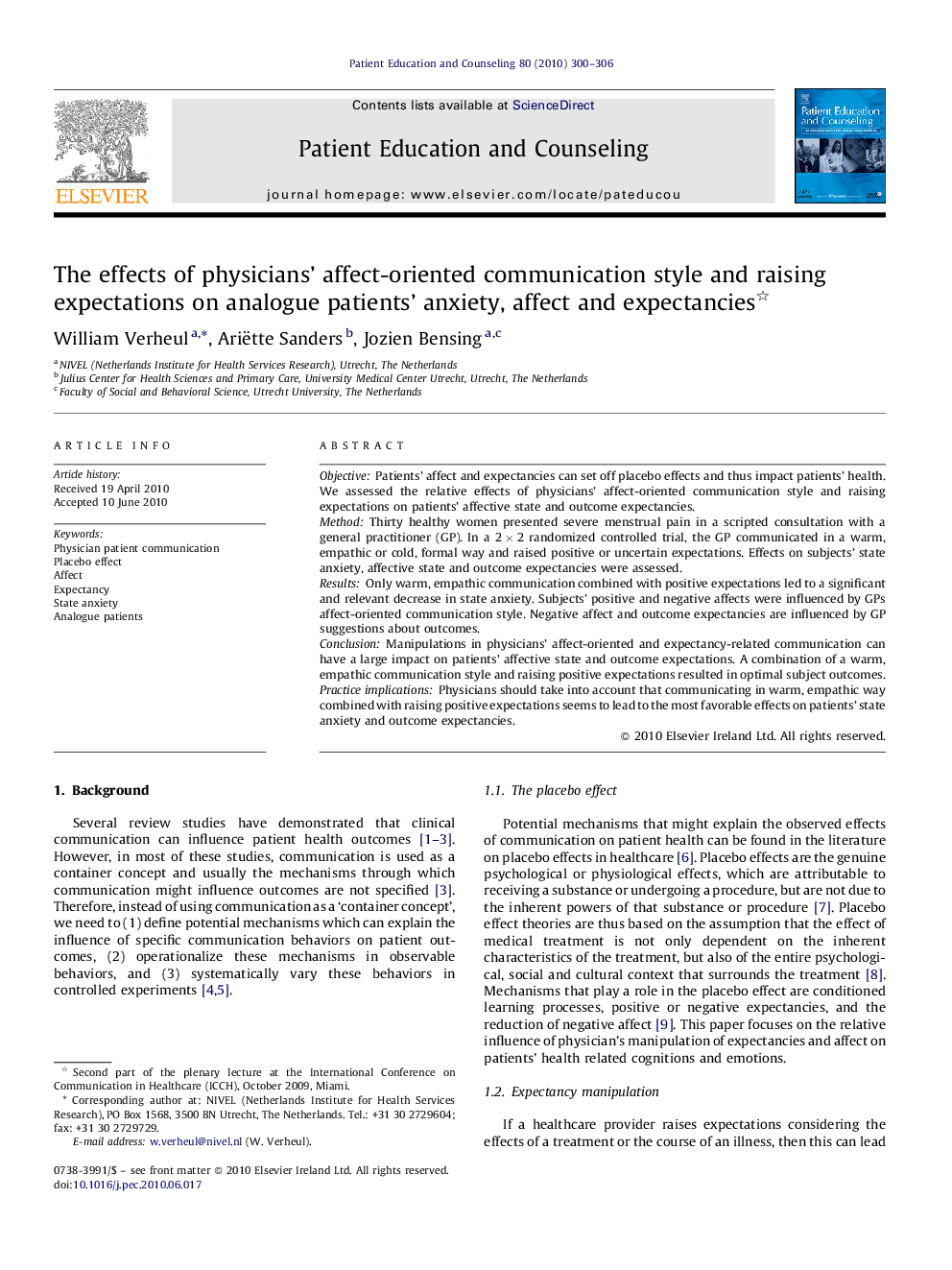| Article ID | Journal | Published Year | Pages | File Type |
|---|---|---|---|---|
| 3815394 | Patient Education and Counseling | 2010 | 7 Pages |
ObjectivePatients’ affect and expectancies can set off placebo effects and thus impact patients’ health. We assessed the relative effects of physicians’ affect-oriented communication style and raising expectations on patients’ affective state and outcome expectancies.MethodThirty healthy women presented severe menstrual pain in a scripted consultation with a general practitioner (GP). In a 2 × 2 randomized controlled trial, the GP communicated in a warm, empathic or cold, formal way and raised positive or uncertain expectations. Effects on subjects’ state anxiety, affective state and outcome expectancies were assessed.ResultsOnly warm, empathic communication combined with positive expectations led to a significant and relevant decrease in state anxiety. Subjects’ positive and negative affects were influenced by GPs affect-oriented communication style. Negative affect and outcome expectancies are influenced by GP suggestions about outcomes.ConclusionManipulations in physicians’ affect-oriented and expectancy-related communication can have a large impact on patients’ affective state and outcome expectations. A combination of a warm, empathic communication style and raising positive expectations resulted in optimal subject outcomes.Practice implicationsPhysicians should take into account that communicating in warm, empathic way combined with raising positive expectations seems to lead to the most favorable effects on patients’ state anxiety and outcome expectancies.
